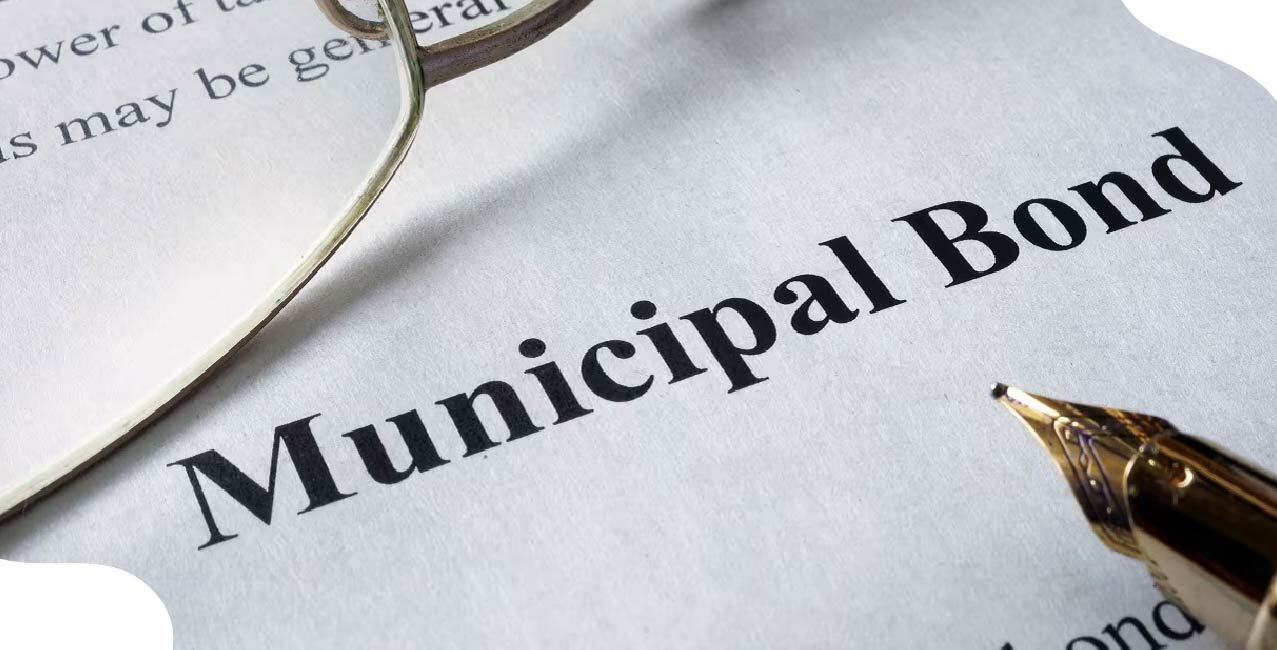Complete Guide to IRFC Bonds: Price, Tax Benefits, and Interest Rate

Check Your Loan Eligibility Now
By continuing, you agree to LoansJagat's Credit Report Terms of Use, Terms and Conditions, Privacy Policy, and authorize contact via Call, SMS, Email, or WhatsApp
Let’s say you sold a property and made a ₹15 lakh profit. Now, you’re staring at a hefty capital gains tax bill. What if you could save that tax and earn a steady income instead? This is where IRFC bonds come in.
By investing ₹ 15 lakh in these bonds under Section 54EC of the Income Tax Act, you not only avoid the tax but also earn 5% annual interest. That’s ₹ 75,000 every year until the bond matures. Sounds great, doesn’t it?
Indian Railway Finance Corporation bonds have been a go-to investment for Indians seeking tax efficiency and stable returns. Rated AAA by CRISIL, ICRA, and CARE, these bonds are as safe as they come. Let’s uncover why they’re worth your consideration.
What Makes IRFC Bonds a Trusted Choice?
IRFC bonds, or Indian Railway Finance Corporation bonds, have been a pillar of financial support for Indian Railways since 1986. These bonds were designed to fund railway expansion through efficient capital market strategies. Here’s why they’re a popular choice:
- Safety Ratings: With AAA ratings, they’re among the most secure investments.
- Fixed Returns: Offering a 5% annual interest rate, they provide a steady income.
- Accessibility: The Indian railway bond price starts at ₹10,000, making it affordable.
If you invest ₹20 lakh, you earn ₹1 lakh annually. After five years, you’d have ₹5 lakh in interest plus your principal back.
Indian Railway Bonds: Tax-Free or Not?
Many wonder if Indian railway bonds are tax-free. Here’s the deal:
- The interest earned on Indian Railway Finance Corporation bonds is taxable.
- However, you can save taxes on long-term capital gains by investing in Indian Railway Finance Corporation Limited Tax-Free Bonds under Section 54EC.
Key Tax Features:
- Lock-in period: 5 years.
- Maximum investment: ₹50 lakh in a financial year.
- Applicable only for capital gains from land or buildings.
Example:
If you sold a property for ₹75 lakh with a ₹25 lakh capital gain, you can invest up to ₹25 lakh in these bonds. The tax exemption applies only to the invested amount.
Interest Rates and Price: What to Expect
The Indian Railway Finance Corporation bonds interest rate is fixed at 5%. This rate may seem modest, but the stability it offers is unmatched. Let’s look at a quick table to understand the potential returns:
Read More – NHAI Bonds Explained: What Every Investor Needs to Know
Investment (₹) | Annual Interest (₹) | Total Interest (5 Years) (₹) | Maturity Amount (₹) |
10,000 | 500 | 2,500 | 12,500 |
100,000 | 5,000 | 25,000 | 125,000 |
1,000,000 | 50,000 | 250,000 | 1,250,000 |
2,500,000 | 125,000 | 625,000 | 3,125,000 |
5,000,000 | 250,000 | 1,250,000 | 6,250,000 |
While the interest rate is moderate, the AAA rating ensures zero default risk. Compare this to other financial instruments like fixed deposits, where returns might fluctuate or lack such high safety.
Why Should You Invest in IRFC Bonds?
Investing in Indian Railway Finance Corporation Limited Bonds has many advantages.
- First, your money stays safe. These bonds have a AAA rating, which means they are extremely reliable. They are backed by the Indian Railways, a government entity that ensures stability. This makes them a solid option for those who don’t want to take big risks.
- Another benefit is that you don’t need a Demat account. You can receive physical bond certificates, which are simple and convenient. Plus, the bonds pay interest every year in October. This ensures a steady and predictable income for investors.
If you’re looking for a secure way to invest, Indian Railway Finance Corporation bonds offer a smart choice. Their interest rate of 5% may seem modest, but the reliability they bring makes up for it.
Who Can Invest in IRFC Bonds?
These bonds are open to a wide range of investors. Individuals, HUFs, companies, and firms can all invest. Whether you are new to investing or have experience, Indian Railway Finance Corporation bonds are simple to understand and easy to manage.
To start, you need to invest at least ₹10,000, which equals two bonds. The maximum amount you can invest is ₹50,00,000 in a financial year. But keep in mind, there’s a five-year lock-in period. This means you cannot withdraw the money during this time.
*However, the safety and guaranteed returns make this lock-in period worthwhile.
Let’s say you’re an individual who has just sold a property. By investing ₹20 lakh in these bonds, you can save a large chunk of your tax liability. The annual interest, credited on October 15, will add an additional stream of income to your finances.
How to Subscribe to Indian Railway Finance Corporation Bonds
Buying Indian Railway Finance Corporation Limited Bonds is very easy. Here's a step-by-step guide to investing in IRFC bonds:
- Start by downloading the application form.
- Fill in your personal details. Attach copies of your PAN card, address proof, and a cancelled cheque.
- Write a cheque payable to "IRFC Capital Gain Bonds."
- Send the form and documents by courier to the given address.
This process is simple and efficient, even for first-time investors. Since there’s no need for a Demat account, you can receive physical bond certificates, which work much like fixed deposits.
With this user-friendly process, investing in Indian Railway Finance Corporation bonds becomes hassle-free. These bonds cater to a wide audience, from retirees to business owners. Their affordability and simplicity make them one of the easiest tax-saving tools available.
Real-Life Scenarios
Let’s look at some examples to understand how Indian railway bonds help investors.
Scenario 1: Take Ravi, for instance. He sold his property for ₹ 80 lakh and made ₹ 30 lakh in capital gains. Instead of paying tax on this amount, he invested the entire ₹ 30 lakh in Indian Railway Finance Corporation tax-free bonds. This saved him ₹ 6 lakh in taxes while giving him a steady annual income of ₹ 1.5 lakh.
Scenario 2: Similarly, Sita, a retiree, was looking for a low-risk investment option. She decided to invest ₹20 lakh in Indian Railway Finance Corporation Limited tax-free bonds. Now, she enjoys a predictable yearly income without worrying about market fluctuations.
Also Read - Understanding Bond Ratings and Their Importance
For business owners, these bonds are equally advantageous. A company that sold a warehouse invested the profits into Indian Railway Finance Corporation bonds. Not only did this reduce its tax burden, but it also provided a secure place to park surplus funds.
These real-world scenarios highlight the flexibility of the Indian Railway Finance Corporation bond interest rate and how they cater to diverse financial needs.
Conclusion: Is It Worth Investing in IRFC Bonds?
If safety, tax efficiency, and steady income are what you seek, IRFC bonds are an excellent choice. These bonds, backed by the government, offer peace of mind with reliable returns. For over 30 years, they’ve supported India’s railway infrastructure while helping investors grow their wealth.
As the country continues to expand its railway network, investing in Indian railway bonds means being a part of this growth story. Their simplicity, dovetailed with the option to save on long-term capital gains tax, makes them highly appealing. The fixed interest rate of 5% and the backing of Indian Railways add to their credibility.
Whether you are a first-time investor or a seasoned one, the Indian Railway Finance Corporation bond price is accessible to all. Are you ready to secure your future while contributing to India's infrastructure development? If so, now is the time to invest in Indian railway bonds tax-free.
FAQs on IRFC Bonds
1. Are IRFC bonds safe?
Yes, they are AAA-rated, indicating high safety and low risk.
2. Can I sell these bonds before 5 years?
No, there’s a mandatory lock-in period of 5 years.
3. Are IRFC bonds better than fixed deposits?
For tax-saving and safety, yes. Fixed deposits don’t offer tax exemptions.
4. How is the interest on IRFC bonds taxed?
The interest is fully taxable as per your income slab.
About the author

LoansJagat Team
Contributor‘Simplify Finance for Everyone.’ This is the common goal of our team, as we try to explain any topic with relatable examples. From personal to business finance, managing EMIs to becoming debt-free, we do extensive research on each and every parameter, so you don’t have to. Scroll up and have a look at what 15+ years of experience in the BFSI sector looks like.
Subscribe Now
Related Blog Post

What are Municipal Bonds – Tax-free Debt Instruments By Local Governments

What are Junk Bonds – High-Yield Bonds and Their Risks

What Is Corporate Bond – Features, Types, And Risk Factors
Recent Blogs
All Topics
Contents
Quick Apply Loan
Consolidate your debts into one easy EMI.
Takes less than 2 minutes. No paperwork.
10 Lakhs+
Trusted Customers
2000 Cr+
Loans Disbursed
4.7/5
Google Reviews
20+
Banks & NBFCs Offers
Other services mentioned in this article





